Related Research Articles
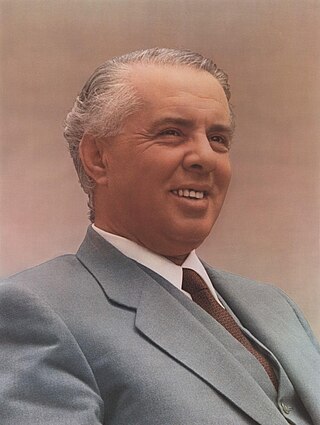
Enver Hoxha was an Albanian communist politician who was the ruler of Albania from 1944 until his death in 1985. He was the First Secretary of the Party of Labour of Albania from 1941 until his death, a member of its Politburo, chairman of the Democratic Front of Albania, and commander-in-chief of the Albanian People's Army. He was the twenty-second prime minister of Albania from 1944 to 1954 and at various times was both foreign minister and defence minister of the country.
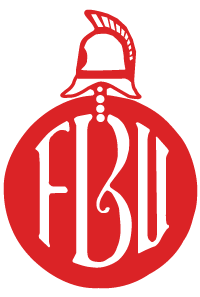
The Fire Brigades Union (FBU) is a trade union in the United Kingdom for wholetime firefighters, retained firefighters and emergency control room staff.
The Union of the Independent Trade Unions of Albania (BSPSH), is a National Confederation of Trade unions in Albania. It was established in 1991 and held its first national conference in February, 1992. It has an estimated membership of 85,000.
The Confederation of Trade Unions (KSSh) is a national trade union federation in Albania. It is a successor organization to the Trade Unions of Albania.
A company or "yellow" union is a worker organization which is dominated or unduly influenced by an employer and is therefore not an independent trade union. Company unions are contrary to international labour law. They were outlawed in the United States by the 1935 National Labor Relations Act §8(a)(2), due to their use as agents for interference with independent unions. However, company unions persist in many countries.
Trade unions in Ghana first emerged in the 1920s and have played an important role in the country's economy and politics ever since.
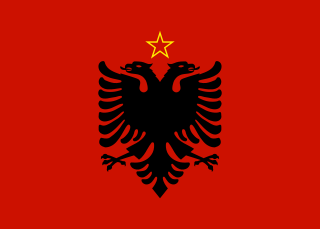
The People's Socialist Republic of Albania, officially the People's Republic of Albania from 1946 until 1976, and from 1991 to 1992 as the Republic of Albania, was the communist state in Albania from 1946 to 1991. It succeeded the Democratic Government of Albania (1944–1946).
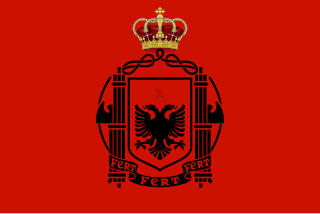
The Italian protectorate of Albania, also known as Italian Albania, the Kingdom of Albania or Greater Albania, existed as a puppet state and protectorate of Fascist Italy. It was practically a union between Italy and Albania, officially led by Italian King Victor Emmanuel III and his government: Albania was led by Italian governors, after being militarily occupied by Italy, from 1939 until 1943. During this time, Albania ceased to exist as an independent country and became an autonomous part of the Italian Empire. Officials intended to make Albania part of a Greater Italy by assimilating Albanians as Italians and colonizing Albania with Italian settlers from the Italian Peninsula to transform it gradually into an Italian land.
Before 1975, while under Portuguese rule, Trade unions in Angola existed primarily as "occupational syndicates" - operating welfare services, but banned from collective bargaining and strike action. Independent African trade unions were illegal, however, some underground or exiled unions existed, and were involved in the struggle for Angolan independence.
The fall of communism in Albania, the last such event in Europe outside the Soviet Union, started in December 1990 with student demonstrations in the capital, Tirana, although protests started in January that year in other cities like Shkodra and Kavaja. The Central Committee of the communist Party of Labour of Albania allowed political pluralism on 11 December and the largest opposition party, the Democratic Party, was founded the next day. March 1991 elections left the Party of Labour in power, but a general strike and urban opposition led to the formation of a "stability government" that included non-communists. Albania's former communists were routed in elections in March 1992 amid economic collapse and social unrest, with the Democratic Party winning most seats and its party head, Sali Berisha, becoming president.
Vazhappady K. Ramamurthy or Vazhapadi K. Ramamoorthy was an Indian trade unionist and politician.

Albania and China established diplomatic relations on November 23, 1949. Albania has an embassy in Beijing and China has an embassy in Tirana.
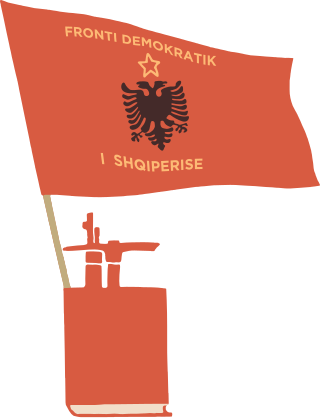
The Democratic Front of Albania was the largest mass organization of the Party of Labour of Albania, which united all other mass organizations of the Party within it. The party was responsible for carrying out the Party's cultural and social programs to the masses, and was in charge of nominating candidates in elections.
Sam McCluskie was a British Labour Party politician and trade unionist. He came from Leith in Edinburgh. He followed Albert Booth as Treasurer of the Labour Party from 1984 to 1992. He was general secretary of the National Union of Seamen from 1986 up to the merger which formed the RMT in 1990. He held a post in that union but retired in 1991.

Pilo Peristeri was an Albanian politician of the Albanian Party of Labour (PPSh).

Rita Marko was an Albanian political figure who served in a number of positions in Albania during its socialist period.
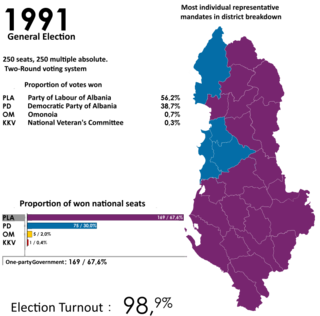
Constitutional Assembly elections were held in the People's Socialist Republic of Albania on 31 March 1991, with later rounds on 7 April and 14 April. They were the first multi-party elections since 1923, and were held after the formation of new political parties was legalised on 11 December 1990 following a strike by 700 students at the University of Tirana over poor dormitory conditions and a power failure, which subsequently became politicised under the influence of Sali Berisha.

Parliamentary elections were held in Albania on 22 March 1992, with a second round of voting for eleven seats on 29 March. The result was a victory for the opposition Democratic Party of Albania, which won 92 of the 140 seats. After the elections Aleksandër Meksi became Prime Minister and Sali Berisha became President.
The Trade Unions of Albania was a mass organization of the Party of Labour of Albania during the socialist period which represented the interests of the working class in industry. Like other mass organizations it was a member of the Democratic Front.
The labour movement is the collective organisation of working people to further their shared political and economic interests. It consists of the trade union or labour union movement, as well as political parties of labour. It can be considered an instance of class conflict.
References
- ↑ "Article 14 [Unions]". Albania - Constitution. Archived from the original on 2007-04-16. Retrieved 2007-05-18.
- ↑ Albania withdrew from the ILO in 1967, but returned in 1991.
- ↑ ICTUR; et al., eds. (2005). Trade Unions of the World (6th ed.). London, UK: John Harper Publishing. ISBN 0-9543811-5-7.
